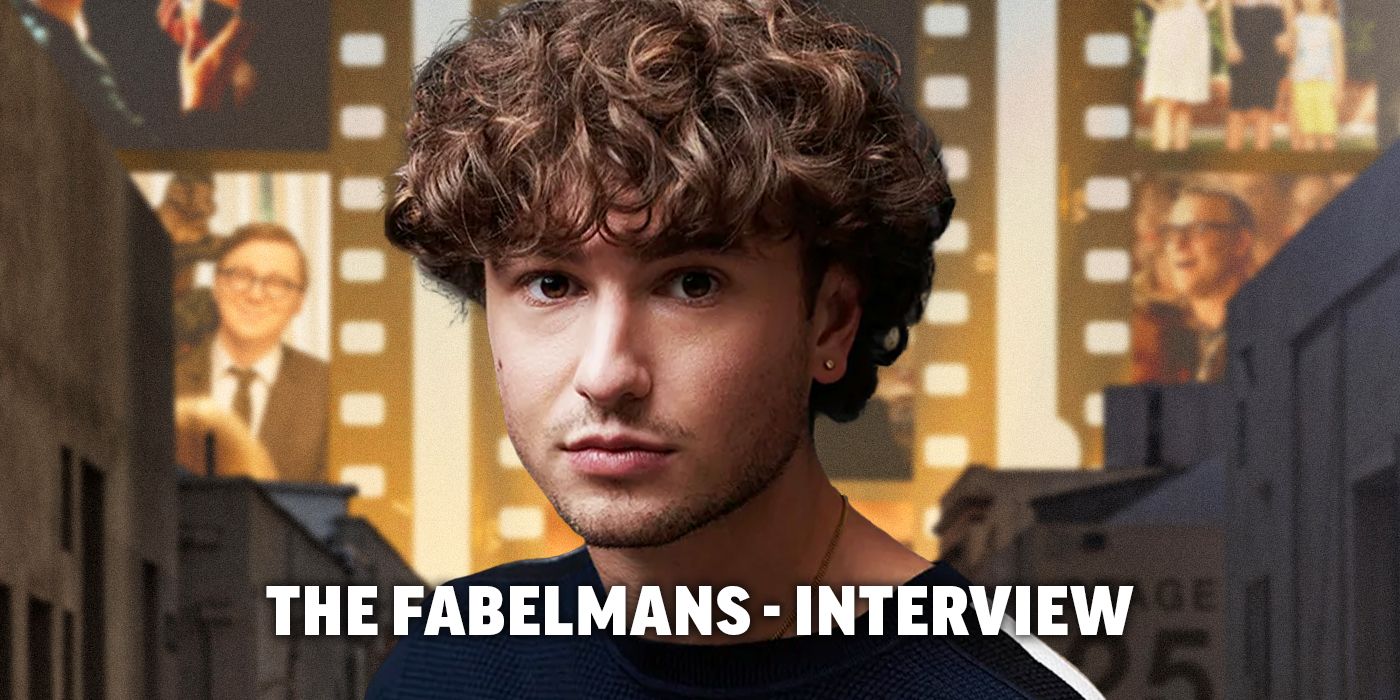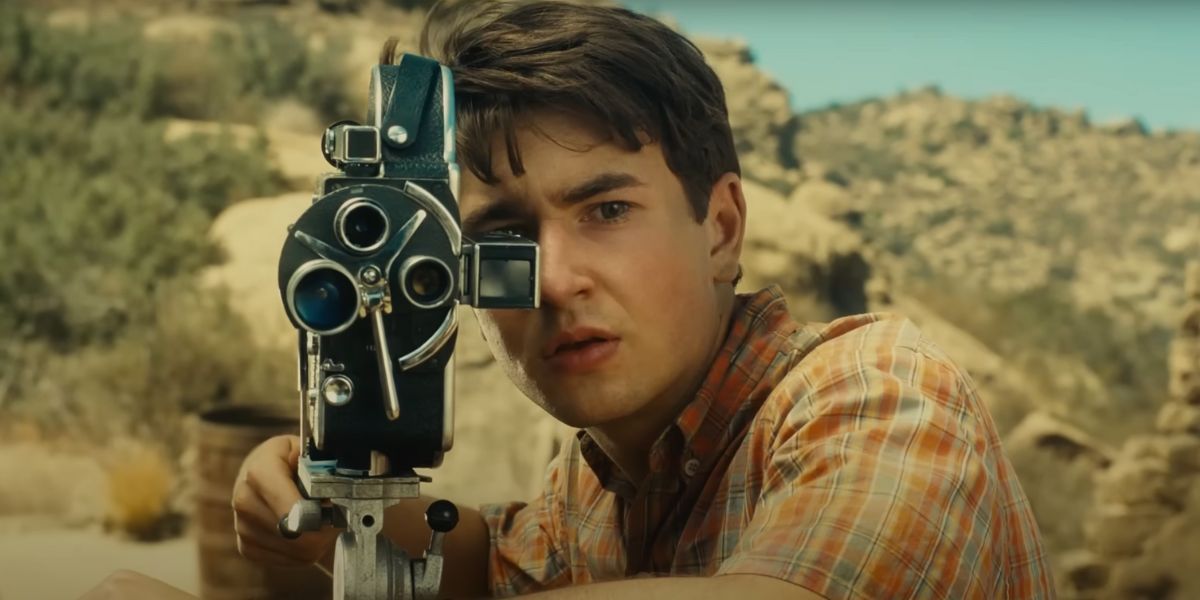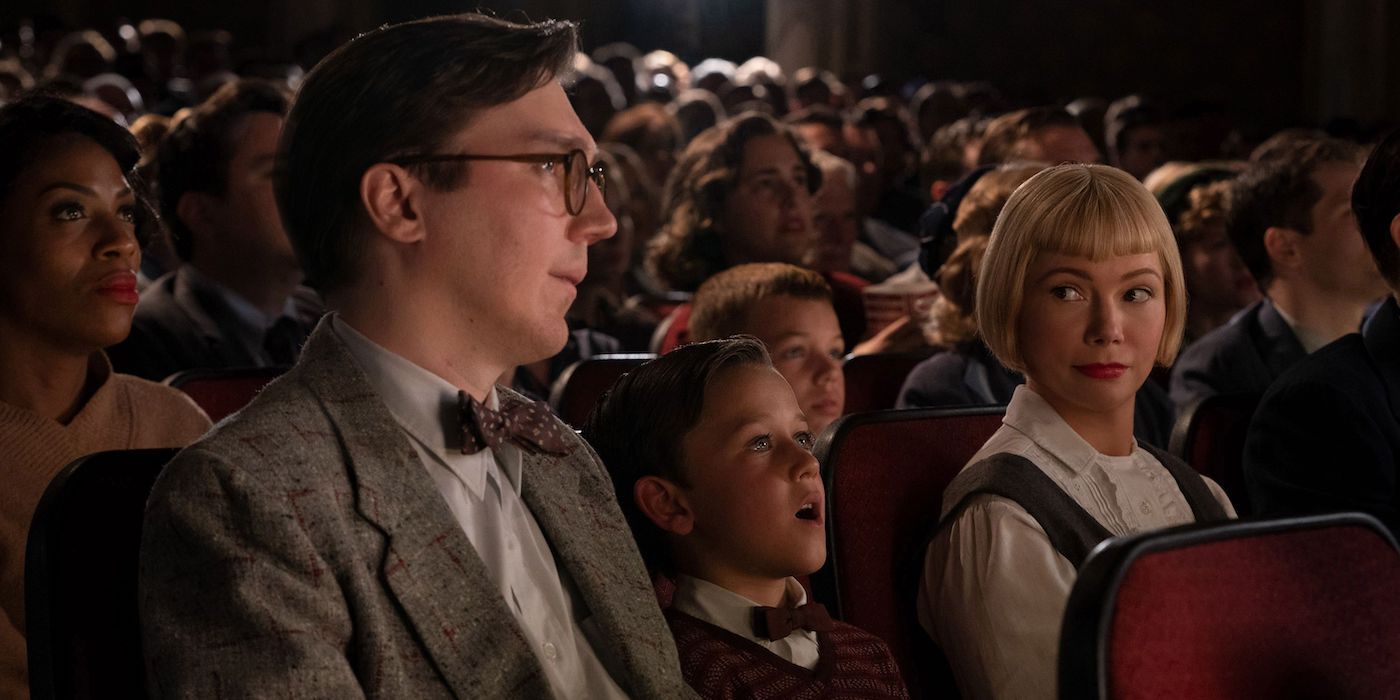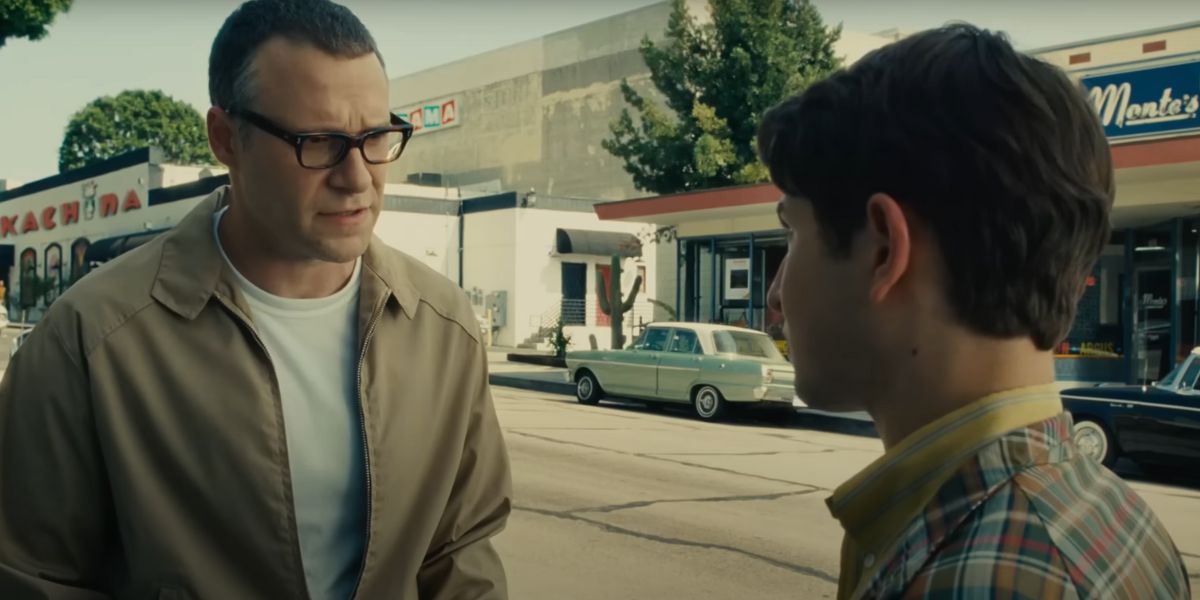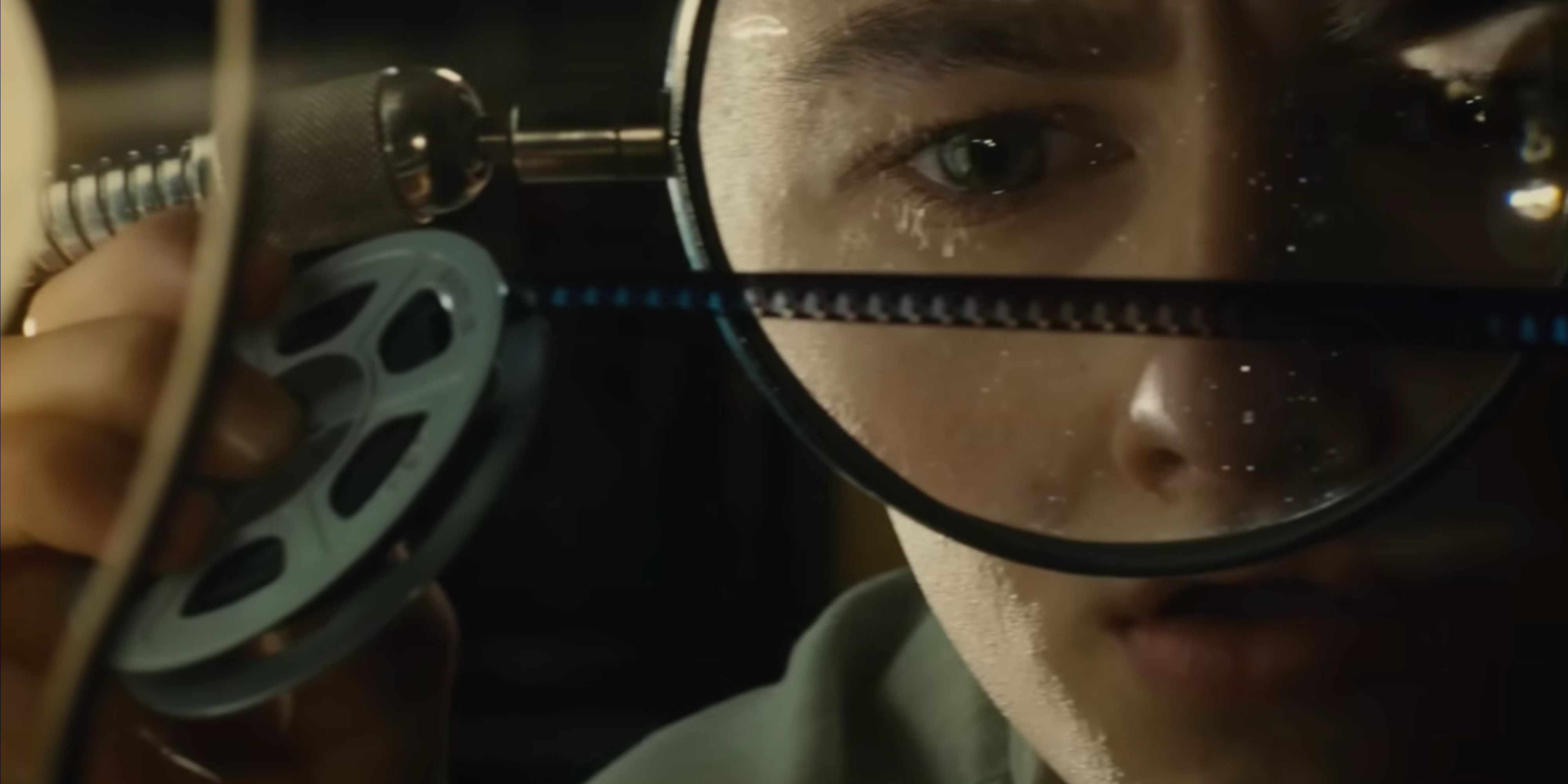In Academy Award-winner Steven Spielberg’s The Fabelmans, the director explores his own coming-of-age tale through the eyes of the fictionalized Sammy Fabelman, whose teenage years are played by Gabriel LaBelle. Set in post-World War II Arizona, The Fabelmans chronicles young Sammy’s exploration of his newfound passion for filmmaking, the discovery of a life-changing family secret, and the ways that different perspectives through the lens can help us better understand the world around us. The film also stars Michelle Williams, Paul Dano, and Seth Rogen.
In an interview with Collider’s Steve Weintraub, LaBelle sat down to discuss what it was like working with co-stars Williams and Dano in his breakout role, and what those Zoom callbacks with director Spielberg were like. He also shared one of the most challenging scenes to film, the hopes he has for his future in Hollywood, and when he first found out about that final scene. Read what he had to say below.
COLLIDER: There are so many questions, but first, obviously, congratulations. You did great.
GABRIEL LABELLE: Thank you.
I know you hear that from everyone. It must be very tough. At what point of the shoot did you feel like you were not going to get fired?
LABELLE: Did I feel like I wasn't going to get fired?
Yeah, because I know a lot of actors and they say the first few days, you never know.
LABELLE: It was actually the first few days that I felt really good. It was as the shoot went on and I started to get really tired just from the hours and the amount of coffee I'd be drinking, that it just kind of all caught up to me. So it was, as the film progressed, it got harder and harder, but I felt like I wasn't going to get fired when... I don't know. There are just some days that feel more real than others. There are some days where you really feel connected to the character and you feel like you've escaped yourself. And those days, I felt like I didn't need the outside validation. But then there were days where I didn't feel like that and Steven would come in crying. So you never know.
It's funny you say that because this is your first lead. It's your first time working on a big Hollywood movie, the first for everything. And a lot of people don't realize, it is a marathon, the shoot, especially when you're in all these scenes.
LABELLE: Yeah, and being around Michelle [Williams] and Paul [Dano] and wanting to do your best to keep up with them, I definitely tried to sprint that marathon. And because I'm learning, I've never done a leading role like that, I didn't know how to pace myself or deal with my energy, or how to conserve myself. And so I definitely went in full throttle and then it caught up to me.
Let's go backwards. I'm sure you've talked about this a bunch, but what was it like when you finally got on Zoom with [Steven] Spielberg and realized, "Oh my, I might actually be close to getting this role"?
LABELLE: It was when I got the callback, the first callback before the one with Steven, where I really saw this, and I read the sides, and it's just beautifully written and I knew what I had to do and it made a lot of sense to me. And there it clicked, like, “Oh, this could be an opportunity that I could do and I want to make sure that I can get it, and I want to make sure that... I want to do all that I can to make sure I leave a good impression and do the job well.” So it was that that I really felt like it was a possibility. But it was in the Zoom with Steven where I'm feeling really good about my performance, and I'm feeling really good about getting to know him and talking to him in that meeting separate to the acting, where I really felt just kind of at peace.
I left that callback thinking I didn't really need it, because I had performed to the best of my abilities and I made a good impression, I felt, towards him. And so if it wouldn't be that one, it would be the next one or whatever, because that opportunity was amazing and it was validating. Yeah. So I guess it was the callback before that, but yeah, it is really cool to feel like you could be a part of something, to anticipate that, or to try to work towards it. It is really special.
How long did you have to keep it a secret that you were cast in the movie?
LABELLE: I told my family right away, but I didn't tell my friends until an article was released that I was cast in it. And then I sent them the article and said, "Hey, read this." That was pretty fun.
I know with COVID it would be difficult, but how many of your friends said, "I absolutely need to visit you on set while you were filming"?
LABELLE: None of them.
Really? Because of the COVID?
LABELLE: Well, it had been a year since I had really seen any of them because they had gone to school and I'm in another country, and it's COVID.
These are all valid reasons. I would imagine you're obviously a film fan, and I'm sure you had preconceived notions of what making a big Hollywood movie might be like. So what surprised you about making a movie like this that you did not expect?
LABELLE: Well, there's the implication that it's a round table of men in suits. “How do we make money?” And it's this big corporate machine. But what I learned working on this film is with Steven, him and Tony [Kushner] and Kristie [Macosko Krieger] and Janusz [Kaminski], they're just like friends holding a camera and having fun, and that he just happens to know how to move the camera a little better than most people. And that's what makes him so special. He just has that instinct and the technical skills, because he's so obsessive about it, and he doesn't waste any time. He shoots and then as the cameras and the lights turn around and there's a 45-minute break, he goes, and he edits, and he doesn't waste any time, but he just loves doing it. And it was this really intimate experience. It was just this passion project that he wanted to grind out and I think that's what makes him successful because he's not making these movies for anybody but himself.
Yeah, I think when as you work on other sets, you will quickly discover that the making of The Fabelmans, I believe, is going to be a unique experience.
LABELLE: Yeah, it was really unique and it was unique for everyone because it's a more personal project than most of us have ever been a part of, and everybody felt that and everybody felt the pressure, but also the love.
Completely. I read that you got to interview Spielberg before the shoot began to learn about him and his family. Most people don't get to do this. So what was it like getting to spend so much time with him?
LABELLE: It was cool. It was intimate. It was over Zoom, but I was just on a mission to understand him to the best of my abilities. That meant asking him about his childhood and his parents and the relationships he had with his sisters and his perspective of himself. I wanted to know as much as I could about who he was at this time in his life in relevance to the character because everything that happens to this character happened to Steven. Exactly. I just wanted to understand what he needed to make the story about his life.
I spoke to Tony yesterday, and they did all these Zoom calls to flesh out the script, and they spent four hours a day, three days a week. And I said to him, I'm like, "At any point did you guys decide, hey, maybe we should film these, hit the record button, and then down the road, you could release an hour version of the two of you, how it all came together?" And it was interesting because he said that when the camera's on, you act maybe a little different.
LABELLE: Yeah.
So I'm just curious for you, at any point when you were interviewing Spielberg, were you like, “I should really record these because-”
LABELLE: No. No, I wasn't. Even in the callbacks. Because I had to film myself separately on my iPhone and send them the footage because the quality over Zoom wouldn't be reliable, and I even felt after I had finished acting, and he would respond, and then we'd talk about the scene and segue into what that scene meant for him, or for me, and talking about his life, it didn't feel right to record that, because that's his personal stuff. It felt like I would be violating him and almost betraying him if I captured-
Oh, I meant actually having permission. I wasn't going to be covertly recording it.
LABELLE: No, no, but I never asked, and it never dawned on me, because it would almost spoil what we're doing.
What ended up being the scene or shot in the movie that turned into a pain in the ass, for whatever reason?
LABELLE: A pain in the ass... There were two that I could think of. One is where, in the trailer, you can see him getting punched in the face, and that scene took place with Sam Rechner, Oakes Fegley, and Isabelle Kusman. It's emotional, I'm exhausted, I'm overwhelmed, and the character is anxious. It's a lot going on. I'm falling down and I'm supposed to be scared, and sad, and whatever is going on. The shot is me falling on the ground and then Sam gets into my face, and I kept whipping my head back and falling on the mat, but the mat would move, or there wouldn't be enough extras in the background, or it wouldn't get the right angle, or we'd do it five times and then that's not what... And then it's like, “Oh, that actually doesn't cut well.”
So that took a really long time to do, and it was exhausting to stay in that place, but also do the stunts. It got to the point where we're just doing it again, and I'm not hearing anything from Steven. And so I'm curious, “Is it something I'm doing, and what's up?” So I kind of get up real quick, I'm wiping the blood off of my face, and I have my head down. I'm still trying to be in that state mentally, and I turn the corner – and this is also in the second week of shooting, Paul, Michelle, Seth [Rogen], they haven't shown up yet and so it's just been me. So I turn the corner and I look, then I see Seth hanging out on video village and I'm like, "Nope, can't do it. Can't meet him like this. Nope, I'm not ready." And so I just go back and we finish it up.
Seth told me that he spent a lot of time on set when he wasn't filming, showing up before filming began, just to watch and see, and I'm like, "Yeah, it's like going to a masterclass, watching the way a genius works…" Before I run out of time, like everyone who has seen the movie, I absolutely love the ending, and I'm just curious, when did you find out that David [Lynch] would be playing that character, and what was it like filming that sequence?
LABELLE: I found out a day before we filmed it. I was very nervous, because it's the last scene of the film, and it's the last time people are seeing my character, and it wraps the bow on Steven's story. I just remember being really nervous, because I also want to honor John Ford and Steven Spielberg, and I really want that scene to work, and Sammy's supposed to be shitting himself, and so I tried to make that as real as possible. So I'm just pacing in a corner the whole day as they do David's coverage first, and all the wides. I'm just by myself the whole time, making it. The only interaction David and I had, as people, was at the end of the scene. At the end of the day, he gets out of his chair, and he gives me a hug, and then he leaves.
Some actors I speak to talk about how they cannot watch their performance in a movie because all they see is the mistakes, and other people are like, “It's not a problem. I can watch the whole thing.” So for you, are you able to watch the movie, or do you cringe the entire time?
LABELLE: No, no, it's weird. I love this movie so much. I've seen it three times, and I remember being really scared before the first time I watched it because I was so self-deprecating on set. It was really extreme. To discover that it's not as life-threatening as I had made it to be is really kind of like, “Oh.” And what Steven and Tony did, it's so beautiful, and watching Paul and Michelle, and every time I watch it, I've seen it three times.
The first time I watched it, I'm watching a Steven Spielberg movie. I'm not remembering my time on set. I was really able to just kind of experience it because it's a good movie. Because I'm making the movie, you show up. It's Steven's story, it's Tony's story, it's Kristie's, it's Michelle's, and Paul's. And I felt very separate to that. I felt that, “Oh, I just better show up and not mess up.” So it's weird now that it's out and people are coming up to me to talk about how great it is because my instinct is to go, "I know, right?" It's weird to feel like I'm a part of it and that's very strange, but awesome because I can watch this movie and just watch the movie.
The thing about being in this film, not only did you get to work with a genius and everything that went on with it, one of the toughest things in Hollywood is getting in front of casting directors. The thing about this movie, and your performance in it and how good it is, and how great the movie is, you're essentially getting in front of every casting director in the business because they're all going to see this movie.
LABELLE: It's the best exposure anybody could hope for. It's really special.
I'm sure that you are either meeting with, or have met with, interesting people over the last little bit, especially as the movie’s getting closer to release, and after [Toronto International Film Festival]. So what is it like for you thinking about what you want to do next as an actor? I'm wagering that there are going to be some choices for you and that you'll be able to enjoy the benefits of this film.
LABELLE: I don't know, because you never know what the opportunities are until they get sent to you. But working with Paul and Michelle and seeing what they've done and how they work is really inspiring. And what was so special about this character is I do feel like, physically, I got to kind of turn into another person, which is really cool to experience and to film my shot in the summer. I felt like a very different person to myself than to Sammy. And so I would like whatever I do next, and so on, to just continue to be really different people. And I would love to work up to a place of transformation. I mean, that's really appealing to me and I would love to do that.
I'm not comparing you to Brad Pitt or anything like that, but one of the things that Brad and other actors love to do is wear makeup, or have themselves beat up, basically changing their appearance. They really love that stuff, because it allows them to portray someone completely different.
LABELLE: It's great. What was so amazing about The Fabelmans is [that] they cut my hair, they straighten it, and they gave me contact lenses. I changed the way I walk, or stood upright. I changed my smile and that was really amazing. I'd never thought that I would be able to do something like that. And it's really appealing to me. It's really, really fun and rewarding, and I'd love to have, like, fake noses or different colored eyes or hair, or just look really different, or learn to talk differently. All that stuff is really, really cool to me. I'm a fan when actors do that and I would love to be a part of it.
I'm curious what Steven was like on set giving you direction because sometimes I've heard directors like to give just a few words, a little adjustment, and other times it's full-on conversations. So what was it like for him, especially because I heard he was very emotional with a lot of the filming? I'm just curious what it was like.
LABELLE: [He] and I spoke so much. I made sure to go over the whole script with him as to what I understand it to be, of what the story is, what the character's arc is, who this person is. I wanted to make sure that [he] and I were on the same page exactly when it came to the movie and the feel of what I was going to do. And so when we got to set, it wasn't much. I felt like we were both expecting the same thing, and if he did direct me, it would be like little things here and there. It was never something significant. He's a really great director in terms of that, where he lets the actor do his thing, and if he says something, it's a really impressive and valuable note, and it's a safety net and you kind of want more direction from him because it's his life story. And sometimes I wish he would say more, because I wanted to make sure he was getting what he wanted. But no, he really let us figure it out.
The Fabelmans is in theaters now. For more on the film, check out Collider's interview with LaBelle's co-star Seth Rogen below:

